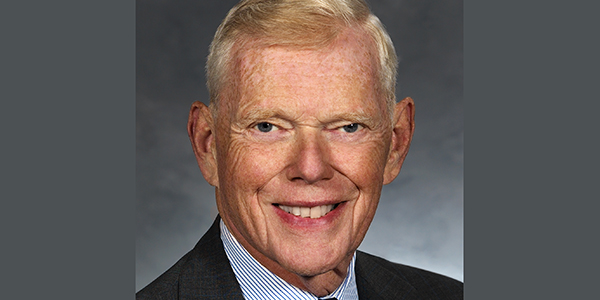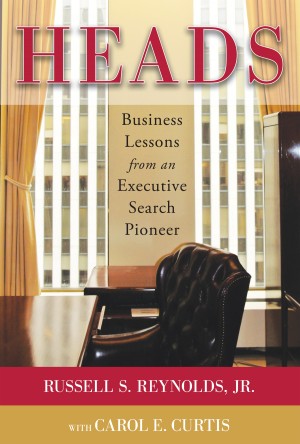
A pioneer of the headhunting profession, Greenwich resident Russell Reynolds Jr., has written a behind-the-scenes book about the executive search profession.
“I”™m very excited about what”™s happened to me,” Reynolds said. “I”™ve been very surprised by the progress I”™ve made.”
When Reynolds first left his lending position at J.P. Morgan & Co. in 1969 to start his own executive recruiting firm, Russell Reynolds Associates (RRA), headhunting wasn”™t a very well-respected field. It was a misunderstood business and it didn”™t attract many talented professionals. But since then, with a little help from entrepreneurs like Reynolds, the field has turned into a multibillion-dollar industry. When Reynolds retired from RRA in 1993, the firm he had built out of an initial $10,000 had established a global presence and almost $100 million in revenues.
In “Heads: Business Lessons from an Executive Search Pioneer,” published by McGraw-Hill in May, Reynolds discusses his life and career, primarily based in Greenwich. The book is co-authored by Carol E. Curtis.
Reynolds, now 80, grew up in Greenwich during the Great Depression and his family history in the town goes back to 1645 when his ancestors moved from Stamford for more farming land. Today he is the managing director of Greenwich-based RSR Partners, an executive, board and leadership recruiting firm with offices in New York, Chicago, Cleveland and Los Angeles.
Offering candid advice on career advancement, Reynolds said the key to a successful career is working hard, having a positive attitude and believing in young talent.
“If you put your mind on something””and you”™re honest, work hard and deliver results ”” people recognize it and you”™ll get rewarded,” Reynolds said.
Some senior level executives have lost their nerve since the recession hit and are a little more cynical about the future now, he said. There are higher turnover rates and a quicker tendency to get rid of employees over mistakes instead of trusting and nurturing them.
“The world isn”™t coming to an end, it”™s not on its knees,” Reynolds said. Those who are sunny, optimistic, charitable and put others”™ interests ahead of their own tend to come out ahead.
“The companies that take advantage of that are going to come out way ahead,” he added. “You should make commitments to people. You”™re not using them; they”™re joining you, even though they might be much younger.”
In terms of getting a job, especially in a tight economy, Reynolds said to first write a good resume. Many professionals say a resume should be only one page, but he strongly disagrees.
“It should be as personal as possible,” he said. “Talk about yourself as a person, not just your job accomplishments ”¦. Include what you like; it gets people to like you.”
After you”™ve finished your resume, start putting your network of personal contacts to use. Make a list of the 20 most important people you know, he said. They should be old co-workers, classmates, lawyers and friends. Then write them a letter explaining that you”™re job-hunting, attached to a paper copy of your resume. Reynolds said he thinks people who generally don”™t know what to do with a hard copy of someone”™s resume, will likely hold on to it and eventually pass it along.
[Editor’s note: This article has been corrected to note that Carol E. Curtis is a co-author of the book “Heads: Business Lessons from an Executive Search Pioneer.” An earlier version of this article omitted Curtis’s name.]




















